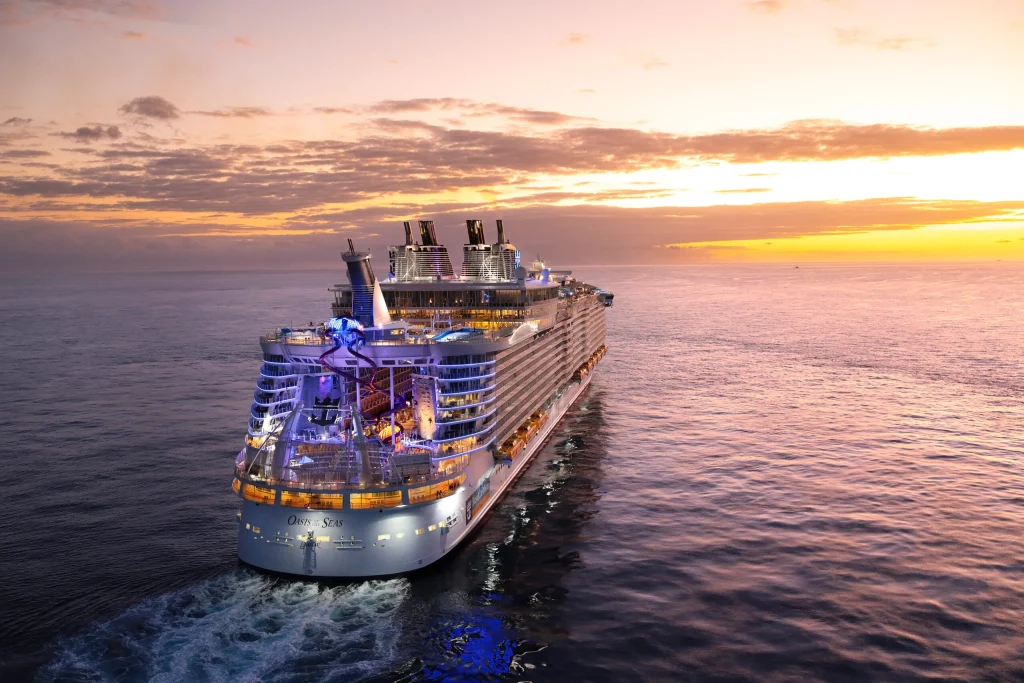One of the unique advantages of cruising through international waters is the different regulations that apply to gambling compared to being on land. Intrigued? Here’s a detailed look at some of the key rules about gambling on cruise ships, starting with the foundational rule.
The Basics of Gambling at Sea
The most basic rule to understand is that a ship is considered an extension of the country whose flag it flies under. This rule applies except when the ship enters another country’s territorial waters. According to maritime law, gambling laws on the waves are determined by the nation the ship is registered with. However, once a ship docks or comes within a certain distance from the coast, it must comply with the laws of that country.
For instance, if a ship is sailing in U.S. waters, it must adhere to U.S. federal and state laws. International waters become territorial waters when a ship is within three to twelve miles of a coastline. In the U.S., cruise ship casinos must close when within twelve miles of the coast.
Gambling Distances and Legalities
The distance a ship needs to be from the coast to allow legal gambling varies by country. In the U.S., ships must be at least twelve miles out before gambling can commence. The UK, however, is more relaxed. Cruise ships don’t need a premises license if they are on a journey into or from international waters. Thus, gambling can occur in UK waters without issue.
Countries with Strict Gambling Laws
In several countries, land-based gambling is illegal or heavily controlled by the state. In such places, ship casinos typically only operate when the ship is more than twelve miles offshore. Some of these countries include:
- Afghanistan
- Algeria
- Bangladesh
- Brazil
- China
- Cuba
- Indonesia
- Iran
- Iraq
- Israel
- Jordan
- Kuwait
- Libya
- Maldives
- Saudi Arabia
- Syria
- Thailand
- Turkey
- United Arab Emirates
- Yemen
Gambling laws can change quickly, so always verify the current regulations before traveling.
Countries with Evolving Gambling Laws
It’s essential to stay updated on local gambling laws before setting sail. For instance, North Korea and Cambodia prohibit land-based gambling for their citizens but allow it for foreign visitors, creating a casino-tourism boom in Cambodia. Japan, on the other hand, has recently legalized integrated resorts (IRs) but imposes strict entry fees and visit limits on Japanese nationals to curb addiction and crime.
Bermuda legalized gambling in 2014 but has yet to open any casinos due to delays. Meanwhile, offshore online casinos bypass Israel’s strict anti-gambling laws, allowing residents to gamble from home. Cruise ships docking in Israeli ports offer an alternative, enabling gambling in international waters.
Legal Gambling Ages on Cruise Ships
The legal age for gambling on cruise ships depends on the ship’s registration and the waters it sails in. In the U.S., passengers must be at least 21 to gamble, while in the UK, the age limit is 18. Some cruise lines may have additional requirements, such as requiring passengers aged 18 to 21 to be accompanied by someone over 21.
Taxes on Gambling Winnings
Tax obligations on cruise ship gambling winnings can be complex. In the U.S., if you win over $1,200 in a single payout or on a table game with odds of 300/1 or higher, the casino must issue an IRS Form W-2G for tax reporting. Smaller winnings may not require immediate reporting, but players should self-report using IRS Form 1040. The UK does not tax gambling winnings, so players can keep their entire winnings.
Regulation of Cruise Ship Casinos
The Cruise Lines International Association (CLIA) sets regulations and policies for cruise ship casinos, following standards similar to those in Nevada, New Jersey, and the UK. These regulations cover equipment, rules of play, internal audits, cash handling, and customer service. With some cruise ships featuring over 300 electronic gaming machines, regulations ensure fair play and customer protection.
If a gambling dispute arises, first address it with the onboard casino manager. If unresolved, escalate it to the hotel manager. For unresolved issues, contact the main office or casino operator on land.
Planning a Gambling Vacation
Planning a cruise that includes gambling offers a unique vacation experience. Cruise ships are essentially luxury hotels at sea, providing all-inclusive dining, entertainment, and casino gaming. Now that you’re familiar with the rules and regulations of gambling on cruise ships, you can confidently plan your next adventure.
